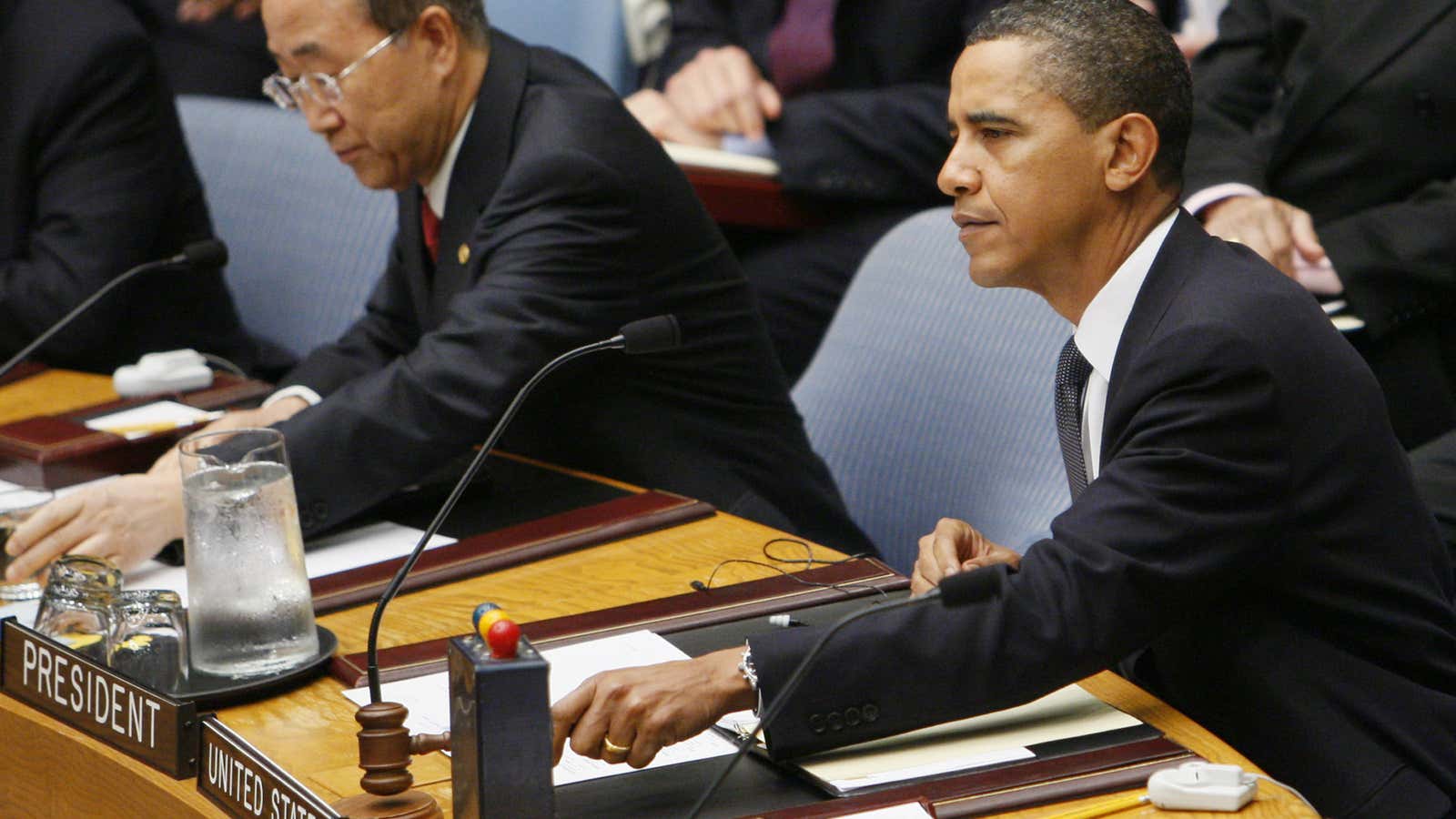From Ralls to Huawei, recent high-profile cases involving Chinese companies lend themselves easily to charges of tough-on-China rhetoric during US election season. But Chinese outbound direct investment is still expected to soar. A significant portion of China’s estimated $1 to 2 trillion of foreign investment will likely enter the US and other developed nations in the next decade. Now is the moment to think seriously about creating a multilateral framework for foreign direct investment.
China’s entry into the World Trade Organization (WTO) in 2001 offers an instructive lesson here. By integrating China into global trade norms, the WTO’s dispute resolution mechanisms allow for China and its trading partners to settle trade disagreements in a predictable way, whatever the outcome. Contrast that with the decision of the Ralls Corp.—a Delaware incorporated company owned by Chinese machine manufacturers—to file a lawsuit against a sitting US president over the handling of a Committee on Foreign Investment in the United States (CFIUS) ruling—something unimaginable under WTO norms.
While WTO entry hasn’t changed the fundamentally interventionist nature of China’s government policies, it has forced China to assess all trade-related laws and regulations for WTO compliance. But when it comes to Chinese companies looking to invest abroad, there still isn’t a global framework that would raise the bar for how Chinese companies operate. Both the real and perceived problems around Chinese corporate governance and transparency, the integrity of financial statements, corporate espionage, rule of law practices, and adherence to intellectual property rights drive the overall investment climate for Chinese companies in the US and elsewhere. Most importantly, China is still a closed political system, despite the Starbucks on every corner and the glossy shopping malls that dazzle foreign visitors. Even for privately held Chinese companies, a firm’s relationship to the Chinese government can raise legitimate national security concerns for host countries.
Given the global shopping spree that Chinese companies are about to embark upon and the opaque nature of the Chinese political system, the number of CFIUS cases and the extra scrutiny that the national security community will extend to Chinese companies are bound to increase. The absence of international guidelines for foreign direct investment adds to the perception that the US is inhospitable to Chinese investment, when in fact, nothing could be further from the truth: just this year, high-profile deals with Chinese companies in the US, from the Chinese acquisition of the cinema chain AMC Entertainment Holdings to the investment in the shale oil and gas fields of Devon Energy Corp., have proceeded without issues.
A framework for foreign investment would further integrate China into a global rules-based system and serve as a way to coordinate countries’ investment guidelines, accounting for national security concerns. In the US, the CFIUS review process is limited to assessing national security implications, and other countries have similar concerns. But when one of China’s wealthiest men, Xiang Wenbo, publicly calls US government officials “petty scoundrels,” as happened on Oct. 18 over the CFIUS ruling in the Ralls case, it’s a wake-up call that Chinese investors are winning a media battle over what should be the legitimate national security concerns of the US. A multilateral agreement could help reassure the investment community through negotiated, uniform guidelines, ensure reciprocal treatment for foreign firms investing in China, and help promote corporate governance and transparency inside Chinese firms.
Multilateral, rules-based systems govern many aspects of the global economy, from the WTO to banking rules to the International Monetary Fund, and the time may have arrived to add foreign direct investment into the mix. A foreign investment framework, globally negotiated, would allow China to get in on the ground floor and allow it to take a leadership role. If China is serious about playing by the rules, it should finally grab the chance to help design them.
